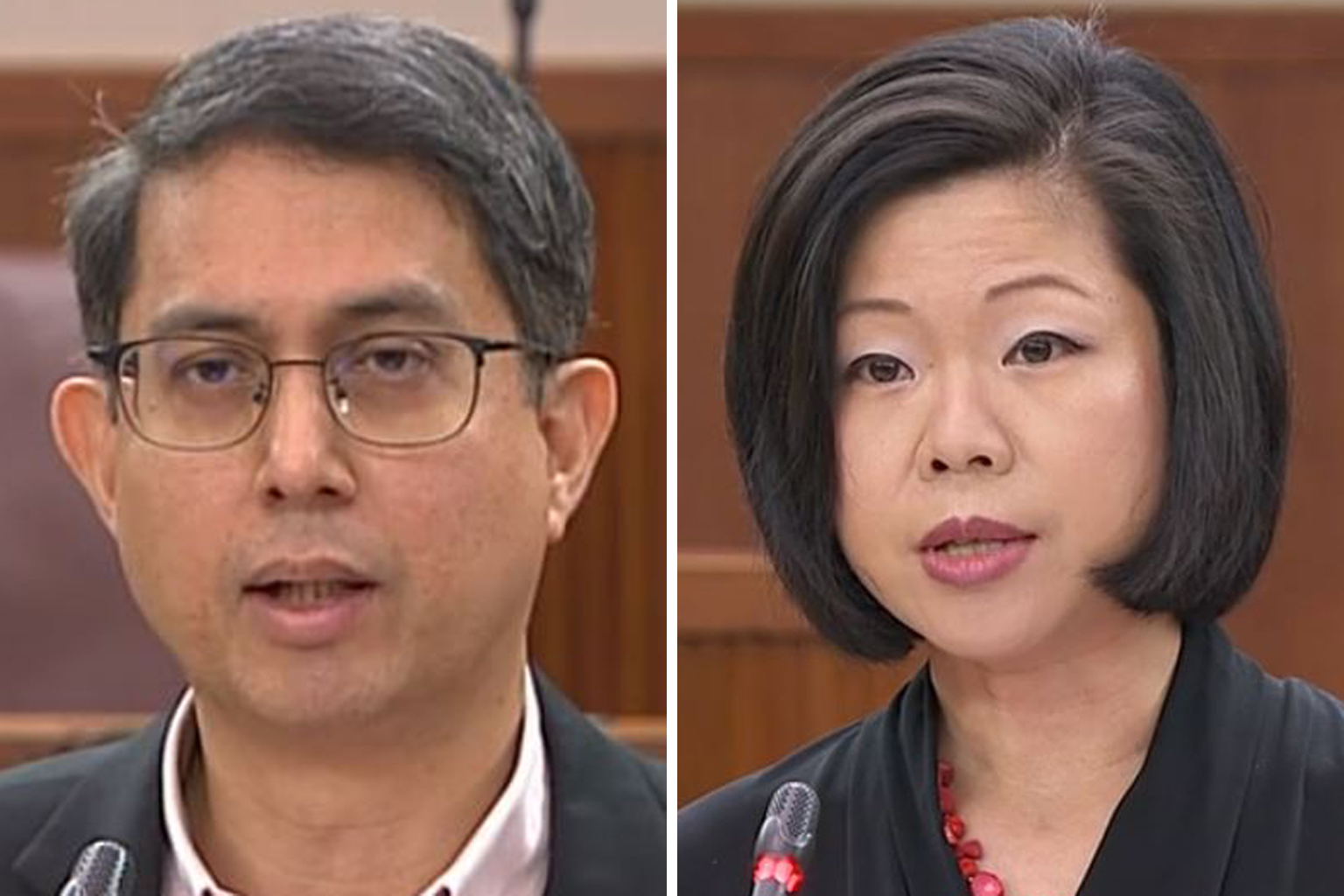Parliament: Critical thinking not limited to liberal arts: Faishal Ibrahim
All educational institutions here nurture it, with sense of responsibility towards society
Sign up now: Get ST's newsletters delivered to your inbox

Dr Faishal Ibrahim said universities have core curriculum components that develop critical thinking skills. Ms Sim Ann said the Government is committed to supporting youth who want to help shape the country's future.
Tee Zhuo
Follow topic:
Critical thinking is an essential skill that Singapore wants its young people to learn, and it is not confined to just liberal arts education, said Senior Parliamentary Secretary for Education Faishal Ibrahim in Parliament yesterday.
"All of our educational institutions nurture students to conduct critical thinking, with maturity of thought and a sense of responsibility towards society," he added.
He was replying to Nominated MP Walter Theseira, who had called on the Government to extend liberal education beyond institutions like Yale-NUS College, a liberal arts institution.
Dr Faishal said universities have core curriculum components that develop critical thinking skills.
"We will work with the autonomous universities (AUs) to see how this can be further enhanced, but the AUs have their constraints like limited curriculum time."
At the secondary and pre-university levels, critical thinking skills are also taught in humanities subjects like social studies, which all students take, he added.
Dr Faishal also touched on the importance of academic freedom in the context of Singapore's norms, a topic Education Minister Ong Ye Kung had dwelt on at length earlier in the House. Mr Ong had explained it when addressing MPs' questions on the recent cancellation of a Yale-NUS College module on dissent and resistance.
Dr Faishal, who is also Senior Parliamentary Secretary for Social and Family Development, said academics should not be overly concerned about academic freedom and urged them to exercise sensible judgment.
"Even in the most liberal societies, academic freedom needs to exist within the norms and culture of the community," he pointed out.
He cited the example of an American university, which in 2013 withdrew a forum invitation to Indian Prime Minister Narendra Modi, who was then Chief Minister of Gujarat state, because of an online protest against him.
Another example he gave was also about an American college withdrawing an invitation to a luminary after criticism by its students.
The invitation was to Ms Christine Lagarde, incoming president of the European Central Bank and former managing director of the International Monetary Fund.
The students had taken issue with her alleged role in failed developmental policies implemented in poorer countries.
Dr Faishal added: "Our universities, being based in Singapore, must operate within Singapore's laws and recognise our particular social and cultural context, like everyone else."
He said he agreed with Associate Professor Theseira's point that the role of the academic while in the classroom should not be one of an activist. Prof Theseira had said: "This is not because activism is wrong, but it is because the students should be tested on their ability to discern the truth, and not on whether their values align with that of the instructor."
Similarly, Dr Faishal said: "Academics can hold their own views on various issues, but they should not mobilise support for partisan causes in the course of teaching and mentoring students."
Ms Sim Ann, Senior Minister of State for Culture, Community and Youth, replied to Nominated MP Anthea Ong, who took up the remaining time allotted for the adjournment motion and spoke on youth activism.
Ms Ong had called on the Government's SG Youth Action Plan (SG YAP) to involve youth in policy-making, saying young people should be able to choose their representatives for the panel.
Ms Sim said the Government is committed to supporting youth who want to help shape the country's future.
"The SG YAP seeks to support youth in coming up with robust and impactful policy ideas and projects, by equipping them with the information and resources they need," she said, pointing out that youth leaders get to engage directly with ministries on policy issues like sustainability.

